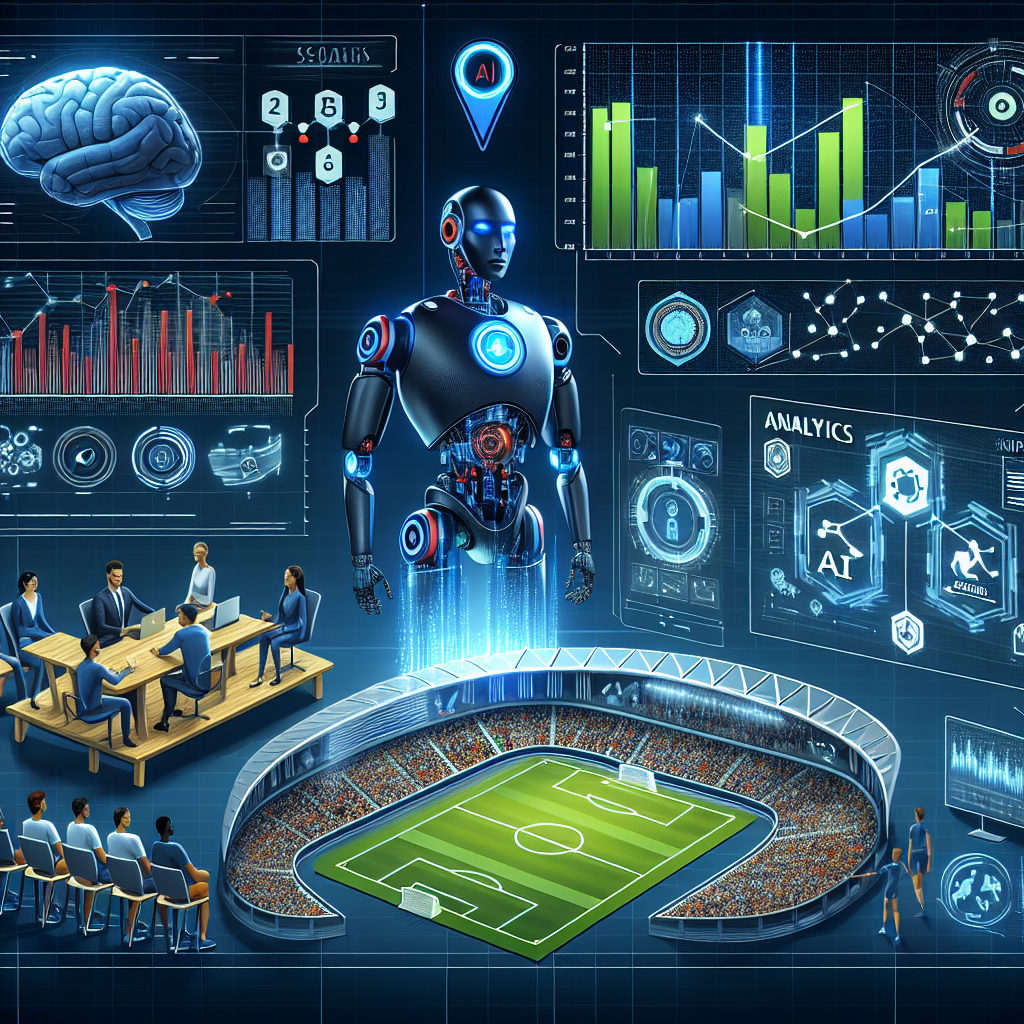In recent years, artificial intelligence (AI) has been transforming the way sports marketing is conducted. AI-driven sports marketing strategies have proven to be highly effective in engaging fans, optimizing advertising campaigns, and driving revenue for sports organizations. By leveraging AI technology, sports marketers can gain valuable insights into consumer behavior, personalize marketing efforts, and improve overall fan experience.
One of the key benefits of AI-driven sports marketing is its ability to analyze vast amounts of data in real-time. This allows marketers to better understand their target audience and tailor their marketing campaigns accordingly. AI algorithms can predict consumer behavior, identify trends, and recommend the most effective marketing strategies to reach fans. This level of data analysis and predictive modeling is not possible with traditional marketing methods, making AI a game-changer in the sports marketing industry.
Another advantage of AI-driven sports marketing is its ability to personalize the fan experience. By using AI-powered tools, sports organizations can create targeted marketing campaigns that are tailored to the preferences and interests of individual fans. This level of personalization can lead to increased fan engagement, loyalty, and ultimately, higher revenue for sports organizations. AI can also help marketers deliver targeted messages to fans at the right time and through the right channels, increasing the likelihood of conversion.
AI-driven sports marketing can also help sports organizations optimize their advertising campaigns. AI algorithms can analyze data from various sources, such as social media, website analytics, and ticket sales, to identify the most effective advertising channels and strategies. By using AI, sports marketers can allocate their advertising budget more efficiently, target the right audience, and measure the impact of their campaigns in real-time. This level of optimization can lead to higher ROI and better overall performance of marketing campaigns.
In addition to improving fan engagement and optimizing advertising campaigns, AI-driven sports marketing can also help sports organizations improve their overall operations. By using AI technology, sports organizations can automate repetitive tasks, streamline processes, and make data-driven decisions. This can lead to increased efficiency, cost savings, and better overall performance of the organization.
Overall, AI-driven sports marketing strategies have the potential to revolutionize the sports marketing industry. By leveraging AI technology, sports organizations can gain valuable insights, personalize marketing efforts, optimize advertising campaigns, and improve overall fan experience. As AI continues to evolve, sports marketers will need to adapt and embrace this technology to stay competitive in the ever-changing sports marketing landscape.
FAQs:
1. How can AI help sports organizations engage fans more effectively?
AI can help sports organizations engage fans more effectively by analyzing data to understand fan behavior, preferences, and interests. This data can then be used to create targeted marketing campaigns that are tailored to individual fans, leading to increased fan engagement and loyalty.
2. How can AI help sports organizations optimize their advertising campaigns?
AI can help sports organizations optimize their advertising campaigns by analyzing data from various sources to identify the most effective advertising channels and strategies. This can lead to higher ROI, better targeting, and improved performance of marketing campaigns.
3. What are some examples of AI-driven sports marketing strategies?
Some examples of AI-driven sports marketing strategies include personalized marketing campaigns, targeted advertising, real-time data analysis, and automated processes. These strategies can help sports organizations engage fans, optimize advertising campaigns, and improve overall operations.
4. How can sports organizations implement AI-driven marketing strategies?
Sports organizations can implement AI-driven marketing strategies by investing in AI technology, hiring data scientists or AI experts, and partnering with AI companies. By leveraging AI technology and expertise, sports organizations can stay ahead of the competition and drive revenue through innovative marketing strategies.
5. What are the potential challenges of implementing AI-driven sports marketing strategies?
Some potential challenges of implementing AI-driven sports marketing strategies include data privacy concerns, lack of expertise, and initial investment costs. Sports organizations will need to address these challenges by prioritizing data security, training staff on AI technology, and carefully planning their AI implementation strategy.

